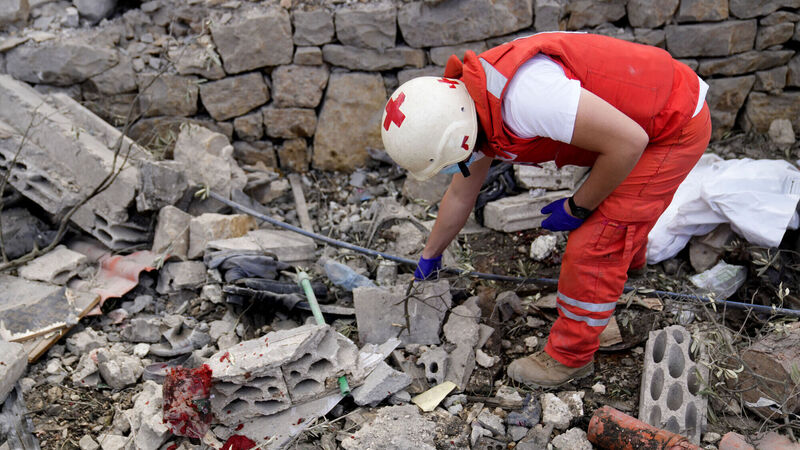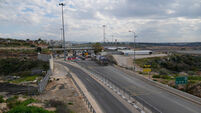Lebanese Red Cross volunteer: 'We never imagined we would end up in the front line of a war zone'

A Lebanese Red Cross volunteer searches for remains in the rubble of a destroyed building at the site of an Israeli airstrike in north Lebanon earlier this month. Photo: AP/Hussein Malla)
When Ali Saad is tasked with making sure Unifil knows his ambulance crews are heading into areas in southern Lebanon being bombed by Israel, he thinks about his “sons” — all 25 of them.
The 57-year-old former Lebanese bank manager’s job is to liaise with Unifil officials every time Lebanese Red Cross (LRC) crews are tasked to mount rescue missions. It is then down to the peacekeepers to inform the Israelis that Ali’s crews are heading into a particular area.














